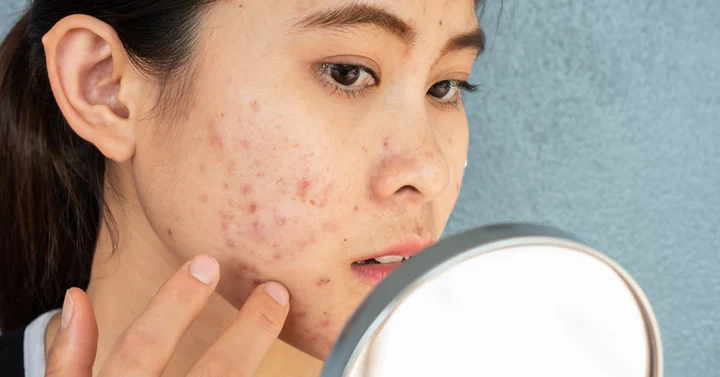Erythema refers to the reddening of the skin, often caused by an increase in blood flow to the capillaries, leading to inflammation. This condition can occur due to various factors, including sun exposure, allergic reactions, infections, or underlying medical conditions. For those dealing with erythema, it is crucial to integrate an effective skincare routine that promotes healing while minimizing irritation.
Causes of Erythema
Several triggers can result in erythema. Sunburn is a common cause, where excessive UV exposure damages the skin, leading to inflammation and redness. Allergens, such as specific skincare products, can provoke contact dermatitis, resulting in localized erythema. Infections from bacteria, viruses, or fungi can cause widespread redness and inflammation. Moreover, underlying conditions like rosacea, eczema, or psoriasis can predispose individuals to persistent erythema.
Skincare for Erythema-Prone Skin
When skincare involves erythema, certain steps should be prioritized to soothe the skin and maintain its integrity.
1. Gentle Cleansing
Users should opt for gentle, hydrating cleansers free from harsh chemicals, fragrances, and alcohol. These formulations help avoid stripping the skin of its natural oils, which can exacerbate erythema. A cream-based or micellar water cleanser is often a good choice, effectively removing impurities without irritating the skin.
2. Moisturization
Hydration is essential for managing erythema. Using a fragrance-free, hypoallergenic moisturizer can help restore the skin barrier, lock in moisture, and soothe irritation. Ingredients like hyaluronic acid, ceramides, and glycerin are excellent choices, as they provide deep hydration while promoting skin barrier repair.
3. Sun Protection
Individuals with erythema-prone skin must prioritize sun protection. Physical sunscreens containing zinc oxide or titanium dioxide are preferred, as they offer broad spectrum protection and are less likely to irritate sensitive skin. Daily application of SPF 30 or higher, even on cloudy days, is crucial in preventing further redness and damage.
4. Anti-inflammatory Ingredients
Incorporating anti-inflammatory ingredients into skincare routines can help reduce redness associated with erythema. Products containing aloe vera, chamomile, calendula, or green tea extract can have calming effects on the skin. Additionally, niacinamide is a standout ingredient known for its anti-inflammatory properties and ability to improve the skin’s overall texture and tone.
5. Targeting Underlying Conditions
If erythema is associated with an underlying skin condition, it is vital to treat the root cause. Consulting with a dermatologist can provide tailored treatment options, such as topical steroids for inflammatory conditions or prescription medications for persistent redness.
6. Avoiding Irritants
Individuals should avoid using products with high concentrations of active ingredients, such as retinoids or alpha hydroxy acids, until the redness subsides. Similarly, it is crucial to stay away from irritating products like abrasive scrubs, exfoliants, or those containing alcohol or fragrances, as they can trigger further irritation and exacerbate erythema.
The Role of Lifestyle in Managing Erythema
In addition to a well-rounded skincare routine, lifestyle factors play a significant role in managing erythema.
1. Diet
A balanced diet rich in antioxidants, omega-3 fatty acids, and vitamins A, C, and E can support skin health. Foods such as berries, leafy green vegetables, fatty fish, and nuts can reduce inflammation and promote skin healing.
2. Hydration
Keeping the body well-hydrated is essential for maintaining skin elasticity and promoting a healthy complexion. Drinking adequate water throughout the day can help reduce skin sensitivity and support overall skin function.
3. Stress Management
Stress can manifest physically on the skin, leading to flare-ups associated with conditions like rosacea or eczema. Incorporating stress-relieving practices such as mindfulness, yoga, or regular exercise can positively impact skin health.
4. Adequate Sleep
Sleep is crucial for skin recovery and repair. During sleep, the body works to heal cells, and the skin has a chance to regeneration. Aim for 7-9 hours of restful sleep each night to support overall well-being and skin health.
Conclusion
Managing erythema requires a thoughtful and gentle skincare routine tailored to the unique needs of sensitive, irritated skin. By focusing on hydration, sun protection, and calming ingredients, individuals can soothe redness while promoting overall skin health. Additionally, being aware of and addressing underlying conditions, lifestyle factors, and triggers is vital in maintaining a clear and healthy complexion. As always, consulting with a dermatologist can provide personalized guidance and treatments tailored to individual needs, paving the way for a more comfortable and radiant skin experience.

